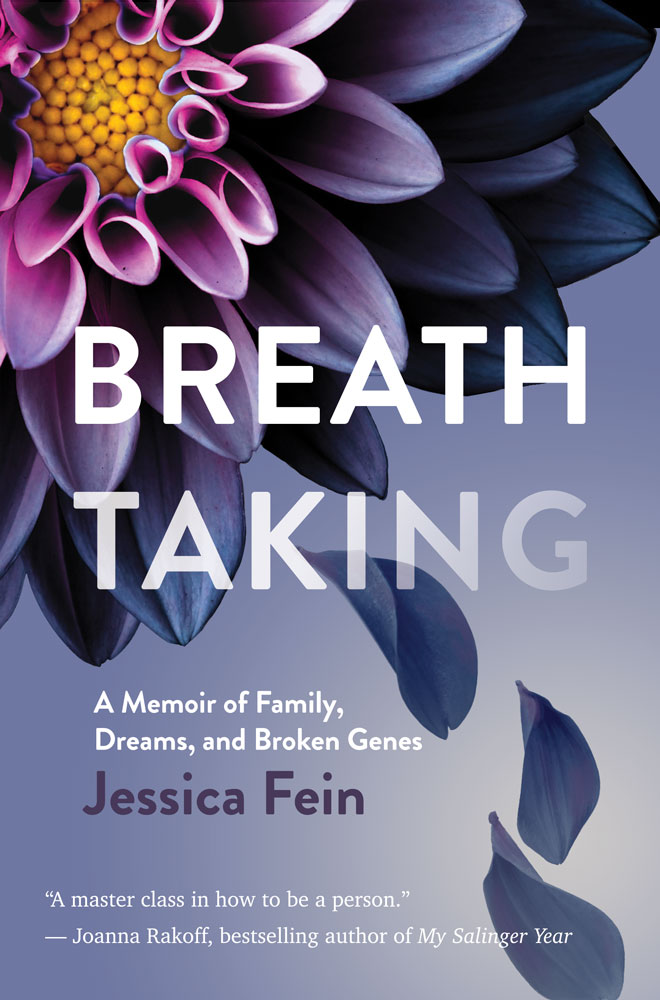Call Us 973 379 7200 | 800 221 2755
Always allow 24-48 hours for picking and packing your order before calculating ship time, especially when requesting UPS next day or second day service. Also, orders that include items printed on demand require additional time.
BREATH TAKING: Questions for Discussion
24
Oct
BREATH TAKING: Questions for Discussion
October 24, 2023
Discussion Questions for BREATH TAKING
- What expectations did you have for this memoir before you began reading it? How did you feel once you had finished?
- Chapter One of Breath Taking describes how Jessica and her husband first learn that something serious is threatening their daughter's health. What do we as readers learn about the author and her approach to being in the world at that moment? How does that initial impression change as we learn more of her story?
- Jessica emphasizes the need for joy to be louder than sorrow. Explore how the family finds moments of joy and how these moments become anchors in the face of heartbreak.
- There is much to make you cry in this book. Yet for all its seriousness, there are still many moments of levity and fun in Jessica's telling. What made you laugh?
- Breath Taking is divided into four parts: Mother May I; We All Fall Down; Ready or Not; and Star Light, Star Bright. How do these divisions help readers understand themes of this memoir?
- Jessica’ sister Rachel described the struggle of fertility treatments as going through life with an umbrella over your head. "You might go to work or to a party or to the movies, you might forget for a little while, but there's always a bit of a dark shadow with you." As she coped with increasing incidents of grief and loss, what decisions did Jessica make about how to handle ever more umbrellas and shadows? Where did she find comfort?
- When they get the diagnosis that their adopted daughter has an incurable degenerative genetic disease, Jessica says to her father, "I'm just glad we didn’t know." What were her reasons? In life, what might it be better to know, and what might be better not to know?
- How might the metaphor of 'a box on a shelf' help someone cope with intractable problems?
- What roles did her parents and sisters play in supporting Jessica and Rob as they navigated fertility treatments, adoption, and their daughter's diagnosis and care. What role did memory play in helping the author continue to feel comforted by them even after their deaths?
- What makes Shawna, Dalia's tutor, such a beloved caregiver? What special skills does she demonstrate about how to interact and care for a severely disabled child?
- With all the effort involved in adopting children, being there for her gravely ill sister, and caring for a child with a rare disease, it seems natural that Jessica might feel that problem solving is her most useful skill. When did problem solving work best for the author? When did it get in her way?
- What are the indicators that the author's sense of Jewish identity is strong? How does her Judaism support her as she navigates loss, grief, and caring for Dalia and her other children?
- What difference does it make for the people around Dalia to 'focus on what she can do as a starting point, rather than what she can't?' What are some instances of that attitude?
- As Dalia began to lose her ability to speak, to walk, to breathe unaided, her parents increasingly looked to her to be their guide for how to treat and interact with her. How did this attitude carry over to Dalia's final days and hours, and what did it provide for them in that moment of unfathomable loss?
- With so many things in her life outside her control, how could Jessica say she made choices about how to live?
- Jessica discusses the importance of embracing vulnerability while maintaining strength. How does vulnerability contribute to resilience, and how can it be a source of empowerment?


